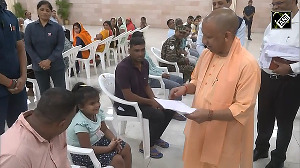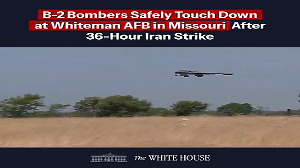Voting got under way on Saturday in a New Zealand election that could lead to the dismantling of the government's nuclear-free laws and strain its relationship with the nation's indigenous Maori people.
About 2,700 polling booths across the nation opened with analysts expecting good weather and a close race for power to bring a strong turnout among the 2.83 million registered voters.
National leader Don Brash, a 64-year-old economist and former central bank governor, has said that if he wins power, he would be prepared to dismantle New Zealand's 20-year-old nuclear-free laws to help pave the way for a free trade deal with the United States - although he would first seek approval for the move in a referendum.
He also would scrap a raft of special privileges aimed at the impoverished Maori, which he has condemned as 'state-sponsored separatism'.
New Zealand's laws banning nuclear weapons and nuclear-powered vessels have strained relations between Washington and Wellington since they were enacted in 1985.
Two-term Labour Prime Minister Helen Clark says she is appalled at the prospect of Brash scrapping them. "We can take pride...in being nuclear free," Clark said in a final recorded television address to the nation on Friday night, "and in having the strength and independence not to send our young people off to fight in unjust wars."The comments were a clear reference to her vocal opposition to US President George W Bush's decision to invade Iraq.






